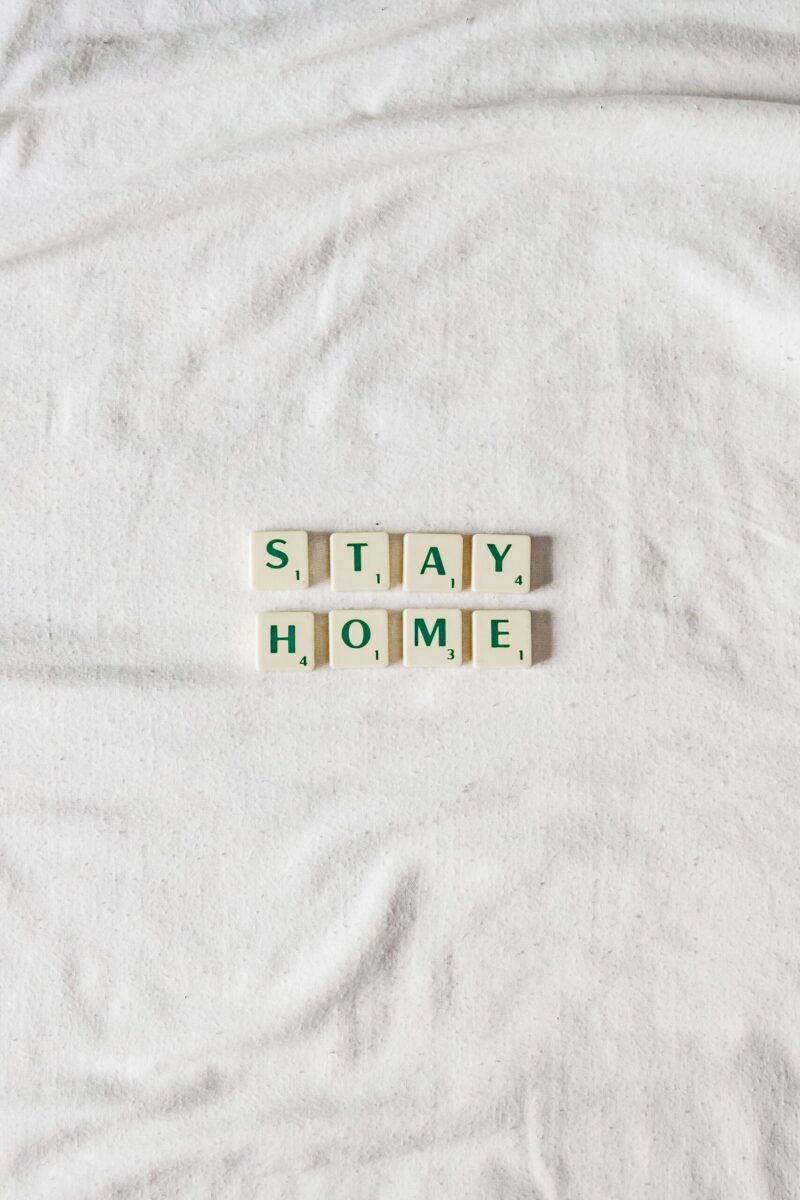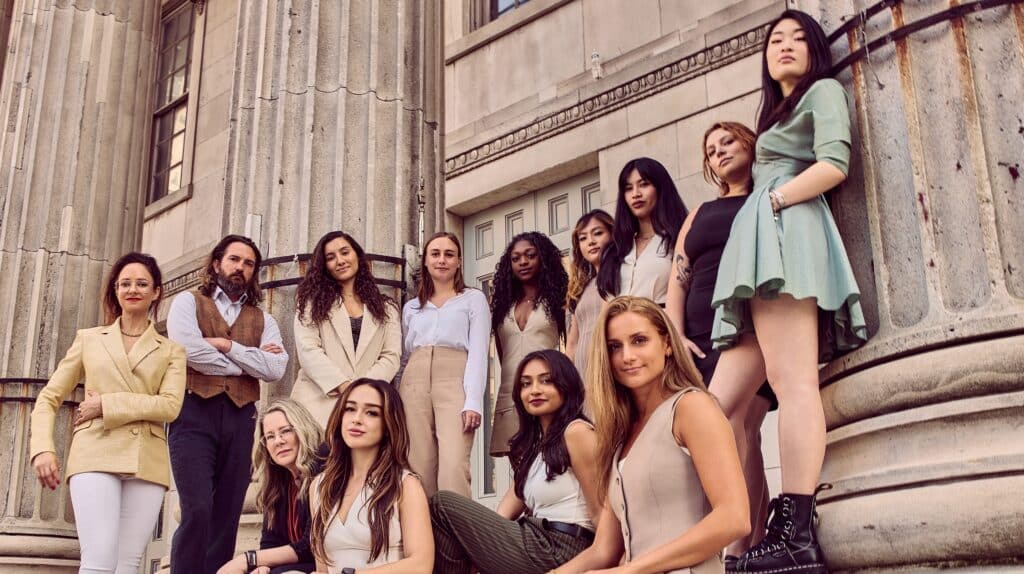By Norma Buster, our Client Relations Manager
I don’t know about you, but I was just starting to feel like myself again. With COVID cases down in the Summer and businesses opening back up, it felt like things were finally somewhat normal. I felt lighter again after months of the lockdown.
Since March I had followed and respected guidelines for social distancing — I knew we had to stay home, and knew how lucky I was to have a job and a safe, healthy home to live in. Still, this Spring, I felt lower than I had in years. I craved my social, busy life from pre-March 2020 and when restaurants opened for outdoor dining I appreciated every single outing, feeling alive and recharged seeing a few familiar faces again after months of being stuck behind a screen.
Of course, life was not the same as it was just before March. Cases of COVID were down, but there was this looming specter of a second wave. No one knew (though many speculated) when it would hit, and it felt like a dreaded abstraction to many of us, myself included.
On top of everything, with Fall approaching, we were also edging closer and closer to Election Day, the national tension building to a fever pitch. Gone were the days when we’d stay up together huddling around a TV to find out who won the presidential election. So, too, were the days when we even knew when to expect the outcome. One night, ahead of the election my friends and I started guessing when we’d find out who won the presidential election—a week later? Not until December? Next year? Luckily the nailbiting didn’t last as long as we’d feared. The week after the election did feel like a strange limbo. But, the moment I saw the notification pop up on my phone, I screamed my roommate’s name and yelled—“BIDEN WON!” I imagine many readers can relate to how I felt at that moment — like I could breathe. A relief. Nothing can take back the pain and hatred the Trump Administration perpetuated. Nothing can bring back the quarter million lives that have been lost. But this win felt like, finally, a step in the right direction, with the potential for real positive change.
Despite the relief that the final Biden victory brought, as a nation I think we’ve all been in this strange purgatory and continue to be. As we await Inauguration Day (and some Republicans continuing to try to discredit Biden as our rightful president-elect), COVID cases are rising, NYC schools have closed, and guidelines continue to be updated. Full lockdowns are looking more and more probable as we go into the holiday season.
We’re all dealing with that the best way we can. I’ve barely responded to any texts this past couple weeks. I tend to do cope by withdrawing from my tech from time to time. I gather I’m not alone. Some of my friends and colleagues say they, too, have taken a reprieve from social media and constant news consumption. You might remember I wrote back in April in a blog post about socially distanced dating, my anxieties surrounding my phone, and the dread I’d feel anytime I felt it vibrate with a notification.
We’re going through these changes as a nation, but victims of abuse are going through it in a unique way.
My ex used social media and tech to stalk and terrorize me, and it’s caused me to develop an instant reflex of anxiety anytime my phone vibrates. It’s like my insides flood with dread. As our country and our news has become more polarized – and we are all constantly flooded with social media and news clogged with misinformation and disinformation, a gaslighting administration that feeds off cruelty, and even a post-election coup d’etat – I know that you don’t have to have had a cruel ex stalking you to feel similarly triggered by your tech.
My phone is on silent all the time now, which helps. But with this post-traumatic stress response, and everything that’s going in in the world at the moment, responding to texts feel like a struggle. I can’t bring myself to answer and it feels easier just to disconnect.
It’s not that I don’t care about the people I haven’t responded to; it’s that I’m so f*cking sad that I don’t have a way of seeing them right now. It’s just easier not to engage, than to carry on a digital back-and-forth knowing that I won’t be able to see their face or hug them for months. It’s being forced to use my phone – a weapon used to terrorize me – as my only source of connection. That’s hard. Maybe you understand, if you’re a victim of stalking, abuse, or revenge porn?
This pandemic has affected survivors of digital abuse in unique ways, as our former client, current therapist Francesca Rossi explains in her Guide to Coping with Quarantine as a Survivor of Digital Violence.
Since the pandemic started, we’ve seen an increase in sextortion (particularly for minors, as our founder Carrie told Refinery29), nonconsensual porn, and stalking and harassment cases. With more screen time available for the average person, it’s not surprising to see an increase in the weaponization of tech.
The mental health impact has been vast — in a recent NY Times article, for example, Emma Goldberg writes about the mental health effects the quarantine has had on children/adolescents. The Center for Disease Control (CDC) has reported an increase in children’s emergency room visits related to mental health during the pandemic, and many researchers have begun investigating how the pandemic will impact teens long-term.
The NY Times also began reporting about the increase in domestic violence due to lockdowns back in April. As we know, abuse is often perpetuated through online means—tech can facilitate crime and become a weapon of abuse.
Since the pandemic started, we’ve seen an increase in sextortion (particularly for minors, as our founder Carrie told Refinery29), nonconsensual porn, and stalking and harassment cases. With more screen time available for the average person, it’s not surprising to see an increase in the weaponization of tech. Especially when there are laws in place to prevent tech companies from evading the accountability that nearly every other corporation in the US faces.
Connecting with other survivors is so healing for me, as well as the conversations and ideas I exchange with colleagues. It helps me feel grounded knowing there’s work I can do.
It’s unclear what things will look like over the next few weeks – how far this shutdown will go. I’m limiting the amount of people I see in person, continue to wear masks in public when I do venture out, and update myself regularly regarding CDC guidelines for social distancing. I remind myself that this isn’t just about keeping me healthy, but everyone around me.
The good news is, we have way more information about COVID going into this second wave, than we did in the beginning of spring 2020. Doctors have been able to confirm how the virus spreads and what we need to do to limit the spread. And not only have we learned about the physical components of COVID—we’ve all experienced dealing with challenges we never had before. We have a new president-elect who believes in science and is surrounding himself by people who do too.
Most of us hadn’t ever experienced being locked in with those we live with 24/7, before this pandemic. Knowing that we may be “locked in” as we were before, my roommate and I discussed what we can do to avoid conflict and to make this go as smoothly as possible for both of us. Part of this involved figuring out what we needed from each other. Our tendency has been to isolate ourselves in our own rooms so we knew we’d need to find things to do together that could help us get through this.
Additionally, I’ve found that work is a saving grace – a coping mechanism for me. When I see depressing news—such as almost any new law the Trump administration has passed, I find myself delving into work, maybe because it’s the only thing I can do. Connecting with other survivors is so healing for me, as well as the conversations and ideas I exchange with colleagues. It helps me feel grounded knowing there’s work I can do.
I’ve found myself saying, “Ugh, I can’t wait until life goes back to normal” – but what does that even mean? There’s no going “back.” As a nation, there have been too many lives lost, and for those of us who have lived through it (this administration, this pandemic), nothing will ever be the same.
I don’t know what the ‘new normal’ looks like. We’re going through these changes as a nation, but victims of abuse are going through it in a unique way. We each have to find what keeps us stable and what keeps us going. For me, it’s this work. I would love to hear what is keeping you going at the moment, too! If you like, tag us on Instagram or twitter @cagoldberglaw and we will share your ideas with other survivors.
Whatever the next few months bring, we’re ready as a firm. We have been here, we are here, and we will continue to be here for you, no matter what. As the Client Relations Manager at C.A. Goldberg, it’s my honor to hear your stories and to see you move from victim to warrior with our support. You, our clients, are what keep me going.
Were you sexually assaulted or stalked by someone you met online?
Were images or videos of you being abused as a child shared on the internet?
We may be able to recover damages.
Click here to schedule a free call about your case
Now read:
- No one should have to shelter with an abuser
- Offender arrested on 13 counts of cyber-harassment
- Coping with quarantine as a survivor of digital violence
- 7 figure recovery for victim of nonconsensual sex act
- Supreme Court Justice Clarence Thomas acknowledges our case against Grindr in a major statement




